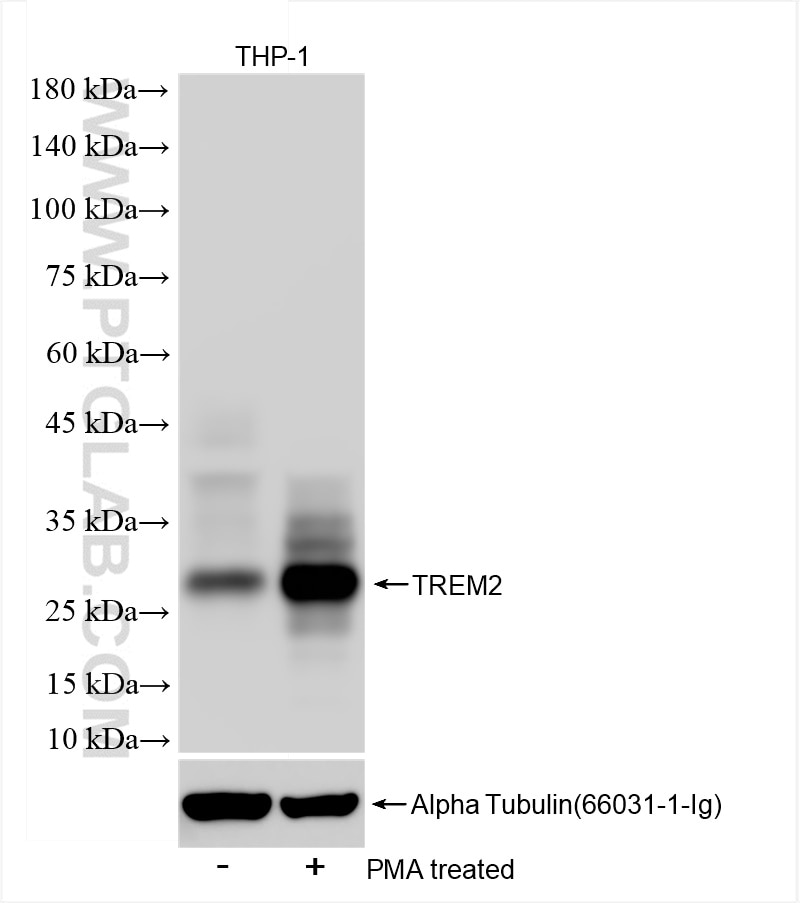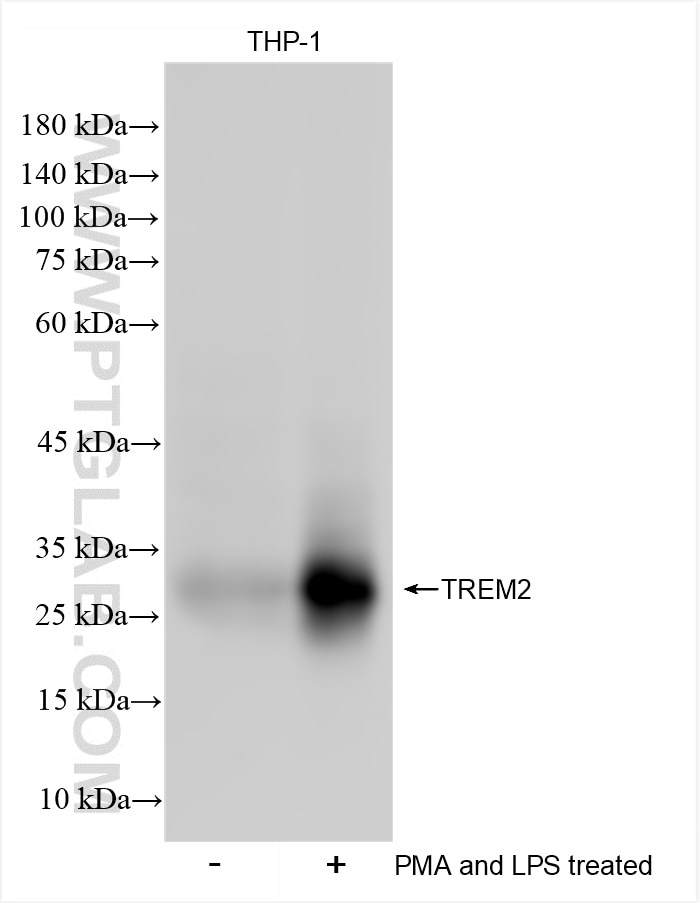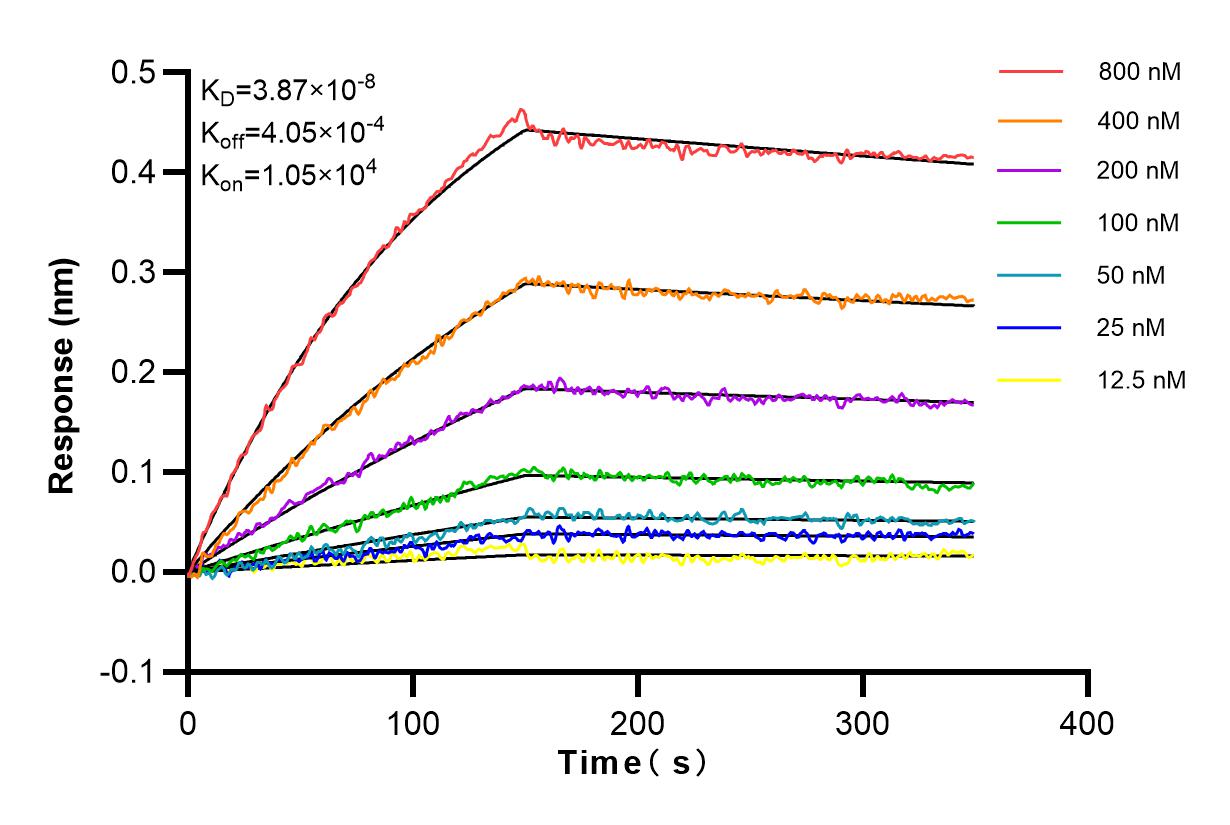Validation Data Gallery
Tested Applications
| Positive WB detected in | PMA treated THP-1 cells, THP-1 cells |
Recommended dilution
| Application | Dilution |
|---|---|
| Western Blot (WB) | WB : 1:2000-1:10000 |
| It is recommended that this reagent should be titrated in each testing system to obtain optimal results. | |
| Sample-dependent, Check data in validation data gallery. | |
Published Applications
| WB | See 1 publications below |
Product Information
83438-6-RR targets TREM2 in WB, ELISA applications and shows reactivity with human samples.
| Tested Reactivity | human |
| Cited Reactivity | mouse |
| Host / Isotype | Rabbit / IgG |
| Class | Recombinant |
| Type | Antibody |
| Immunogen | TREM2 fusion protein Eg0747 相同性解析による交差性が予測される生物種 |
| Full Name | triggering receptor expressed on myeloid cells 2 |
| Calculated molecular weight | 222 aa, 25 kDa |
| Observed molecular weight | 26-32 kDa |
| GenBank accession number | BC032362 |
| Gene Symbol | TREM2 |
| Gene ID (NCBI) | 54209 |
| RRID | AB_3671079 |
| Conjugate | Unconjugated |
| Form | Liquid |
| Purification Method | Protein A purfication |
| UNIPROT ID | Q9NZC2 |
| Storage Buffer | PBS with 0.02% sodium azide and 50% glycerol{{ptg:BufferTemp}}7.3 |
| Storage Conditions | Store at -20°C. Stable for one year after shipment. Aliquoting is unnecessary for -20oC storage. |
Background Information
TREM2 (triggering receptor expressed on myeloid cells 2) is a cell surface receptor belongs to TREM family that is expressed on osteoclast, dendritic cells, macrophages, nature killers, neutrophils and microglia (PMID: 19302484). TREM2 is localized predominantly in the Golgi complex, but also shuttles to and from the cell surface in endocytic and exocytic vesicles (PMID: 16675145). TREM2 associates with DAP12 to initiate the intracellular signalling cascade via an immunoreceptor tyrosine-based activation motif (ITAM) domain and tyrosine-kinases (PMID: 23977213).
Protocols
| Product Specific Protocols | |
|---|---|
| WB protocol for TREM2 antibody 83438-6-RR | Download protocol |
| Standard Protocols | |
|---|---|
| Click here to view our Standard Protocols |
Publications
| Species | Application | Title |
|---|---|---|
Free Radic Biol Med TREM2 alleviates sepsis-induced acute lung injury by attenuating ferroptosis via the SHP1/STAT3 pathway |


